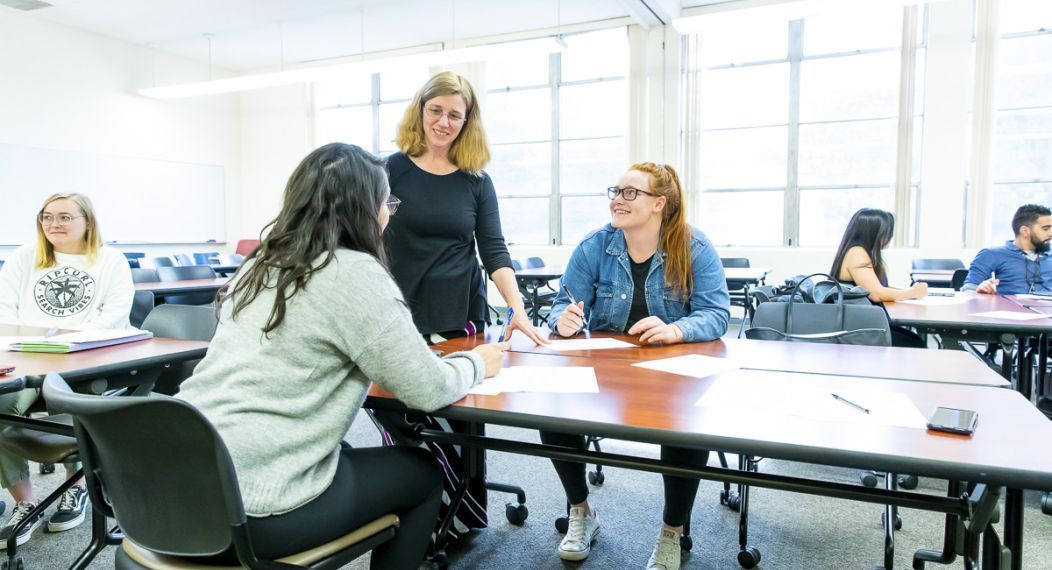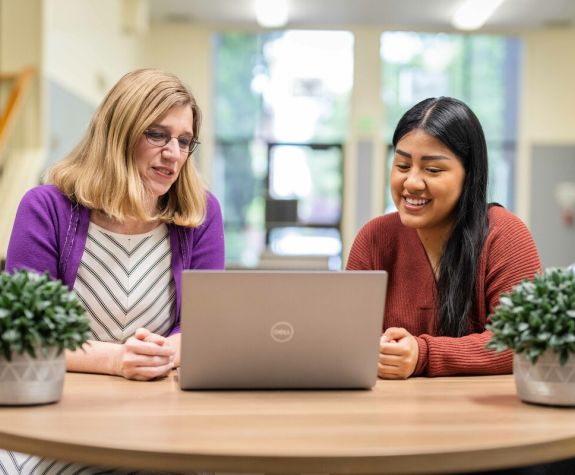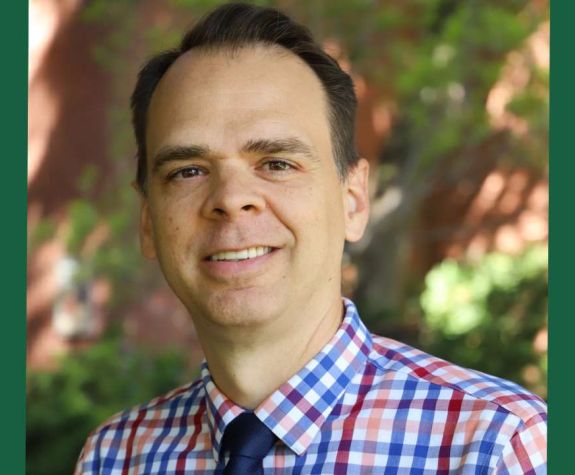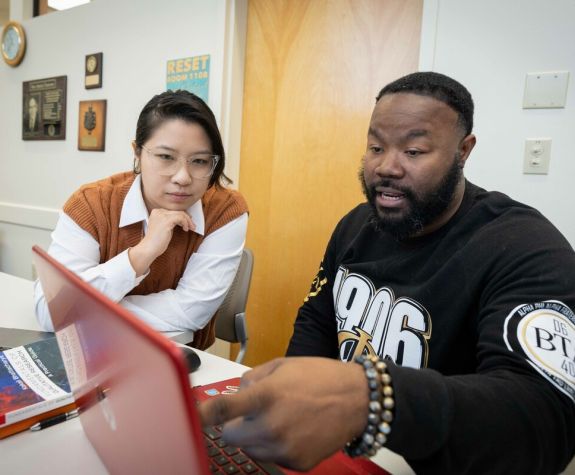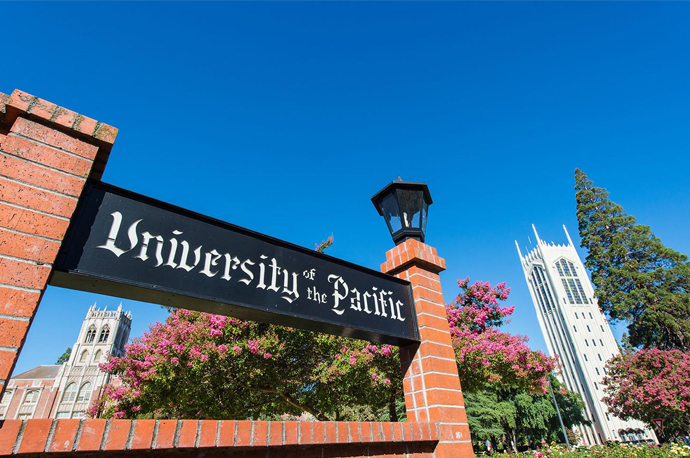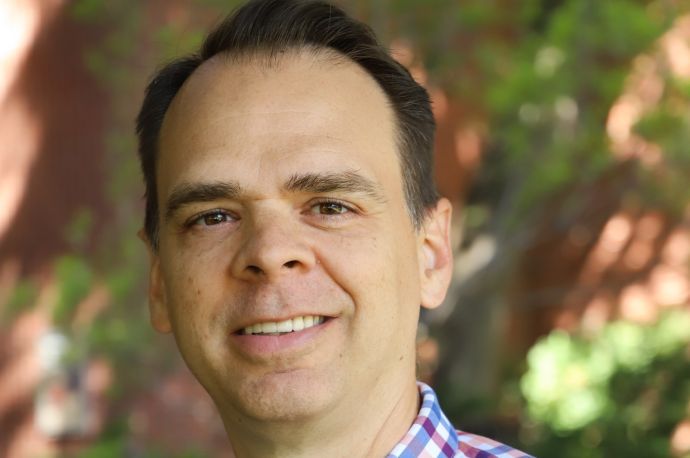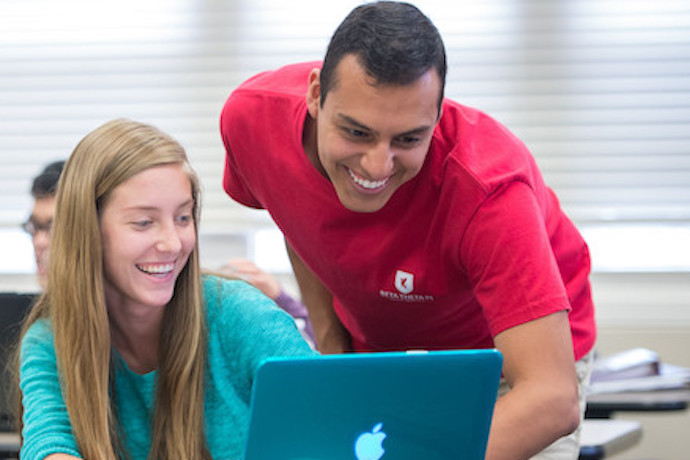|
EDUC 216: Nature and Conditions of Learning (3) Students study both cognitive and traditional learning theories, their applications to instruction and the development of effective teaching strategies. In addition, information processing models are explored and their implications for instruction are addressed. EDUC 387: Human Sexuality (1) This course reviews the basic anatomy, sexual function and response, and challenges and disorders of sexual function. Diagnostic formulations and treatments for the disorders that clinicians are most likely to encounter in clinical practice are also presented. Finally, challenges and complexities of sexuality within special populations are reviewed. |
| Year 1: Fall |
EDUC 201: Techniques of Research (3) Students study the various research methodologies that include qualitative, descriptive, causal-comparative, survey, correlational and experimental. Emphasis is on learning to read and comprehend research published in professional journals. The content includes understanding how basic descriptive and inferential statistics are applied to address quantitative research questions. EDUC 343: Psychopathology and Wellness Promotion (3) Psychopathology and Wellness Promotion. 3 units. This course will examine a variety of mental disorders from a variety of perspectives, including the biomedical model of mental disorders and diagnostic categories while emphasizing sociocultural viewpoints and developmental experiences. The predominant treatments, including educational interventions, for the major disorders will also be covered, as well as primary and secondary prevention of mental disorders and the promotion of health and mental health in public schools and the community. EDUC 336: Group Counseling (3) This course prepares mental health professionals to use direct methods and techniques of group counseling for children, adolescents, adults, and elder adults. EDUC 337: Crisis Intervention (3) This course reviews counseling theory and basic listening and responding skills and contrast them with crisis counseling practices. It also examines various programmatic approaches to the primary and secondary prevention of educational failure and the promotion of health and mental health. The focus is on the enhancement of individual and family competence following a crisis event. The course explores the underlying knowledge base, models for implementing prevention, specific examples of techniques and programs designed to intervene before, during and after a crisis event. Also covered is policy questions, and evaluation issues. Specific attention is given to concepts of stress, coping, and resiliency. Programs such as suicide prevention, crisis intervention, drug and alcohol education, sexuality education, child abuse prevention, and others are closely examined and criticized. |
| Year 1: Spring |
EDUC 202: Statistical Thinking and Communication (3) The objectives of this course are to review basic descriptive statistics and solidify students’ understanding of inferential techniques commonly employed in educational research. Students will learn how to conduct appropriate statistical analyses, interpreting output produced by SPSS statistical software. Students will gain confidence in reading results sections of journal articles and learn to communicate using statistical terminology. Analysis of results sections of journal articles will demonstrate that the student can recognize situations, for which various statistical techniques are applicable, explain the reasoning underlying the choice of those techniques, interpret results, and critically evaluate whether the authors’ conclusions logically follow from the data analysis conducted and the statistical information presented. Students are expected to learn the power of statistical analysis. EDUC 335: Psychotherapeutic Interventions (3) This course provides an overview of counseling and psychotherapeutic theories, principles, and techniques, including the counseling process in a multicultural society, an orientation to wellness and prevention, counseling theories to assist in the selection of appropriate counseling interventions, models of counseling consistent with current professional research and practice, and the development of a personal model of counseling. EDUC 342: Law and Professional Ethics (3) This course is designed for students in credential and licensing graduate programs in human services and mental health professions. Students will study approaches to ethical decision-making in addition to learning relevant law and regulation and existing ethical codes of behavior. EDUC 334: Theories of Multicultural MFT (3) This course prepares mental health clinicians to assess functioning in and design and implement interventions for couples and families by studying major theories of couples and family therapy. This course also prepares mental health clinicians to help families collaborate with helping institutions to improve the well-being of children. |
|
EDUC 349: Psychopharmacology (3) This course surveys the physiological and behavioral effects of the major classes of psychoactive drugs, including therapeutic agents and drugs of abuse, mechanisms of action, side effects, effects on the fetus, and collaborating with other health and mental health professionals and families. The main focus of this course is on psychoactive anxiety disorders, schizophrenia, and substance abuse. EDUC 385: Alcoholism and Chemical Substance Abuse Dependency (3) This course describes the most commonly abused substances as well as the signs of abuse and addiction and the most effective treatment principles and therapeutic techniques. EDUC 386: Child Abuse Assessment and Reporting (1) This course provides information on identifying, assessing, and reporting child abuse and neglect, including the laws governing mandated reporting. This course also covers prevention and treatment of child abuse and neglect. EDUC 384: Spousal/Partner Abuse Detection and Intervention (1) This course addresses the causes, assessment, treatment, statistics and legal issues concerning intimate partner violence. |
|
EDUC 346: Psychological Assessment (3) This course prepares mental health professionals to use psychological testing and assessment information in a problem solving process, and to use data-based decision making to improve outcomes for instruction, development of cognitive and academic skills, and the development of life competencies. Students will also be exposed to process and procedures identified in referral and state laws related to special education services. EDUC 338: Consultation Methods (3) This course prepares school psychologists to provide mental health consultation to school personnel and parents. Various consultation methodologies will be studied with applications particularly appropriate to children in the public school system. EDUC 388: Counseling Practicum (3) Counseling Practicum entails the supervised application of psychological procedures in appropriate settings. |
| Year 2: Spring |
EDUC 393: Advanced Psychotherapeutic Tech (3) EDUC 330: Human Development (3) This course focuses on the developmental period of early childhood development. The course examines theoretical and research-based knowledge of the influences of biological, social, affective, cultural, ethnic, experiential, socio-economic, gender-related, and linguistic factors in children’s development. EDUC 348: Neuropsychology (3) This course provides a general overview of: brain-based behavior; neuroanatomy and physiology; conceptualizing psychoeducational and psychological assessment data from a neuropsychological perspective; the effects and uses of psychotropic agents; and information on neuropathology. EDUC 388: Counseling Practicum (3) Counseling Practicum entails the supervised application of psychological procedures in appropriate settings. Complete Capstone Experience |
|
EDUC 393: Career Counseling (3) |
|


